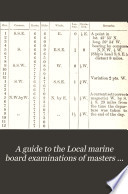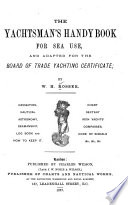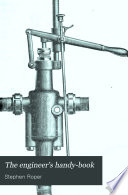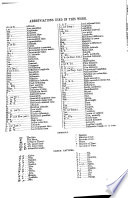 | Leonard Allen - Merchant marine - 1872 - 226 pages
...of Time. The difference between mean time and apparent time. 43. Hour Angle of a Celestial Object. The angle at the pole between the meridian of the observer and the meridian passing through the object. 44. Complement of an Arc or Angle. The difference between the... | |
 | William Henry Rosser - 1877 - 158 pages
...of Aries. Note. — The Sidereal Time at a place is also the RIGHT ASCENSION op THE MEBIDIAH, that is, the angle at the pole between the meridian of the observer and the meridian passing through the First Point of Aries. -. ' ; . . 40. Mean Time. — The westerly hour... | |
 | Stephen Roper - Mechanical engineering - 1884 - 740 pages
...subtracted from all altitudes. Hour angle of a celestial object. — The hour angle of a celestial object is the angle at the pole between the meridian of the observer and that of the celestial object. Latitude. — Latitude is distance north or south from the Equator, measured... | |
 | Nathaniel Bowditch - Nautical astronomy - 1906 - 670 pages
...is the angle at the pole between the hour circle of the point and that of the First Point of Aries; it may also be regarded as the arc of the equinoctial...intercepted between those circles. It is measured from the First 1'oint of Aries to the eastward as a positive direction, through twenty-four hours or... | |
 | A. P. W. Williamson - Nautical astronomy - 1909 - 410 pages
...Mar. April. May. June. July Лщг Sept. Oca Nov. Dec. \ 39. — Hour Angle of a Celestial Object. — The angle at the pole between the meridian of the observer and the meridian passing through the object. In fig. 34 — Angle Z 1JS is the hour angle of S. 40.— Observed... | |
 | South Australia. Surveyor-General's Office - Surveying - 1914 - 200 pages
...reckoned from west to east, like longitude, in hours and minutes. 1 32. Hour Anyles. — An hour angle is the angle at the pole between the meridian of the observer and the object observed. Apparent time is the hour angle of the sun. Right ascension of the meridian is the... | |
 | Nathaniel Bowditch - Nautical astronomy - 1916 - 912 pages
...is the angle at the pole between the hour circle of the point and that of the First Point of Aies; it may also be regarded as the arc of the equinoctial...intercepted between those circles. It is measured from the First Point of Aries to the eastward as a positive direction, through twenty-four hours or... | |
 | Henry Libby Thompson - Navigation - 1916 - 88 pages
...horizon. Zenith Distance (ZD) — Is the distance of a heavenly body from the zenith. Hour Angle — Is the angle at the pole between the meridian of the observer and the hour circle passing through the body. Hour Circles — Are formed by extending the planes of the terrestrial meridians until they... | |
 | John Huntington Crane Coffin - Nautical astronomy - 1919 - 284 pages
...but if the declination were 30° S., the polar distance would be 120°. 17. The Hour Angle of a body is the angle at the pole between the meridian of the...observer and the hour circle passing through that body; it may also be regarded as the arc of the equinoctial intercepted between those circles. It is... | |
 | Clarence Eugene Woodman - 1919 - 16 pages
...the Astronomical Triangle: sin h= : sin c sin f sin Z sin p where h is the hour-angle of the sun; ie, the angle at the Pole between the meridian of the observer and the sun's meridian at the time. (The other symbols have been previously explained.) Working this out: log... | |
| |